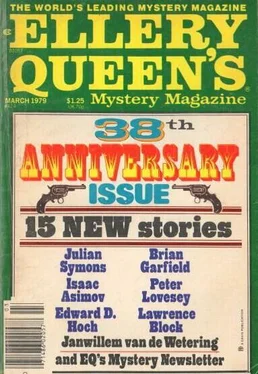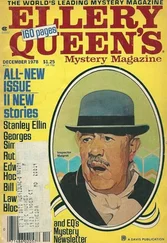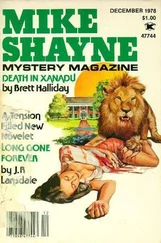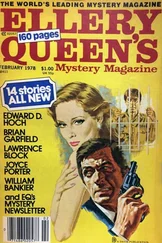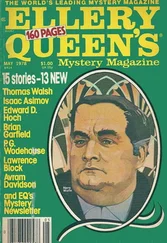Lawrence Block
The Ehrengraf Obligation
“Play me songs with flatted thirds:
Puppets dance from bloody strings.
Music mourns dead birds.
Breath is sweet in broken things.”
—William Telliford
William Telliford gave his head a tentative scratch, in part because it itched, in part out of puzzlement. It itched because he had been unable to wash his lank brown hair during the four days he’d thus far spent in jail. He was puzzled because this dapper man before him was proposing to get him out of jail.
“I don’t understand,” he said. “The court appointed an attorney for me. A younger man, I think he said his name was Trabner. You’re not associated with him or anything, are you?”
“Certainly not.”
“Your name is—”
“Martin Ehrengraf.”
“Well, I appreciate your coming to see me, Mr. Ehrengraf, but I’ve already got a lawyer, this Mr. Trabner, and—”
“Are you satisfied with Mr. Trabner?”
Telliford lowered his eyes, focusing his gaze upon the little lawyer’s shoes, a pair of highly polished black wing tips. “I suppose he’s all right,” he said slowly.
“But?”
“But he doesn’t believe I’m innocent. I mean he seems to take it for granted I’m guilty and the best thing I can do is plead guilty to manslaughter or something. He’s talking in terms of making some kind of deal with the district attorney, like it’s a foregone conclusion that I have to go to prison and the only question is how long.”
“Then you’ve answered my question,” Ehrengraf said, a smile flickering on his thin lips. “You’re unsatisfied with your lawyer. The court has appointed him. It remains for you to disappoint him, as it were, and to engage me in his stead. You have the right to do this, you know.”
“But I don’t have the money. Trabner was going to defend me for free, which is about as much as I can afford. I don’t know what kind of fees you charge for something like this but I’ll bet they’re substantial. That suit of yours didn’t come from the Salvation Army.”
Ehrengraf beamed. His suit, charcoal gray flannel with a nipped-in waist, had been made for him by a most exclusive tailor. His shirt was pink, with a button-down collar. His vest was a Tattersall check, red and black on a cream background, and his tie showed half-inch stripes of red and charcoal gray. “My fees are on the high side,” he allowed. “To undertake your defense I would ordinarily set a fee of eighty thousand dollars.”
“Eighty dollars would strain my budget,” William Telliford said. “Eighty thousand, well, it might take me ten years to earn that much.”
“But I propose to defend free of charge, sir.”
William Telliford stared, not least because he could not recall the last time anyone had thought to call him sir. He was, it must be said, a rather unprepossessing young man, much given to slouching and sprawling. His jeans needed patching at the knees. His plaid flannel shirt needed washing and ironing. His chukka boots needed soles and heels, and his socks needed replacement altogether.
“But—”
“But why?”
Telliford nodded.
“Because you are a poet,” said Martin Ehrengraf.
“Poets,” said Ehrengraf, “are the unacknowledged legislators of the universe.”
“That’s beautiful,” Robin Littlefield said. She didn’t know just what to make of this little man but he was certainly impressive. “Could you say that again? I want to remember it.”
“Poets are the unacknowledged legislators of the universe. But don’t credit me with the observation. Shelley said it first.”
“Is she your wife?”
The deeply set dark eyes narrowed perceptibly. “Percy Bysshe Shelley,” he said gently. “Born 1792, died 1822. The poet.”
“Oh.”
“So your young man is one of the world’s unacknowledged legislators. Or you might prefer the lines Arthur O’Shaughnessy wrote. ‘We are the music makers, And we are the dreamers of dreams.’ You know the poem?”
“I don’t think so.”
“I like the second stanza,” said Ehrengraf, and tilted his head to one side and quoted it:
“With wonderful deathless ditties
We build up the world’s greatest cities,
And out of a fabulous story
We fashion an empire’s glory:
One man with a dream, at pleasure,
Shall go forth and conquer a crown;
And three with a new song’s measure
Can trample an empire down.”
“You have a wonderful way of speaking. But I, uh, I don’t really know much about poetry.”
“You reserve your enthusiasm for Mr. Telliford’s poems, no doubt.”
“Well, I like it when Bill reads them to me. I like the way they sound, but I’ll be the first to admit I don’t always know what he’s getting at.”
Ehrengraf beamed, spread his hands. “But they do sound good, don’t they? Miss Littlefield, dare we require more of a poem than that it please our ears? I don’t read much modern poetry, Miss Littlefield. I prefer the bards of an earlier and more innocent age. Their verses are often simpler, but I don’t pretend to understand any number of favorite poems. Half the time I couldn’t tell you just what Blake’s getting at, Miss Littlefield, but that doesn’t keep me from enjoying his work. That sonnet of your young man’s, that poem about riding a train across Kansas and looking at the moon. I’m sure you remember it.”
“Sort of.”
“He writes of the moon ‘stroking desperate tides in the liquid land.’ That’s a lovely line, Miss Littlefield, and who cares whether the poem itself is fully comprehensible? Who’d raise such a niggling point? William Telliford is a poet and I’m under an obligation to defend him. I’m certain he couldn’t have murdered that woman.”
Robin gnawed a thumbnail. “The police are pretty sure he did it,” she said. “The fire axe was missing from the hallway of our building and the glass case where it was kept was smashed open. And Janice Penrose, he used to live with her before he met me, well, they say he was still going around her place sometimes when I was working at the diner. And they never found the fire axe, but Bill came home with his jeans and shirt covered with blood and couldn’t remember what happened. And he was seen in her neighborhood, and he’d been drinking, plus he smoked a lot of dope that afternoon and he was always taking pills. Ups and downs, like, plus some green capsules he stole from somebody’s medicine chest and we were never quite sure what they were, but they do weird things to your head.”
“The artist is so often the subject of his own experiment,” Ehrengraf said sympathetically. “Think of De Quincey. Consider Coleridge, waking from an opium dream with all of ‘Kubla Khan’ fixed in his mind, just waiting for him to write it down. Of course he was interrupted by that dashed man from Porlock, but the lines he did manage to save are so wonderful. You know the poem, Miss Littlefield?”
“I think we had to read it in school.”
“Perhaps.”
“Or didn’t he write something about an albatross? Some guy shot an albatross, something like that.”
“Something like that.”
“The thing is,” William Telliford said, “the more I think about it, the more I come to the conclusion that I must have killed Jan. I mean, who else would kill her?”
“You’re innocent,” Ehrengraf told him.
“You really think so? I can’t remember what happened that day. I was doing some drugs and hitting the wine pretty good, and then I found this bottle of bourbon that I didn’t think we still had, and I started drinking that, and that’s about the last thing I remember. I must have gone right into blackout and the next thing I knew I was walking around covered with blood. And I’ve got a way of being violent when I’m drunk. When I lived with Jan I beat her up a few times, and I did the same with Robin. That’s one of the reasons her father hates me.”
Читать дальше
